Braunschweig University of Technology
History
The Braunschweig University of Technology (Technische Universität Braunschweig), colloquially referred to as TU Braunschweig, is the oldest technische Universität (university of technology) in Germany. It was founded in 1745 as Collegium Carolinum and transformed into a technical university in 1968. The history of the university is intertwined with the development of technical education and research in Germany and Europe.
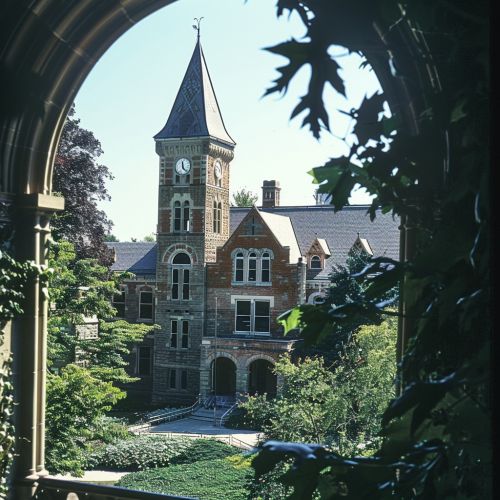
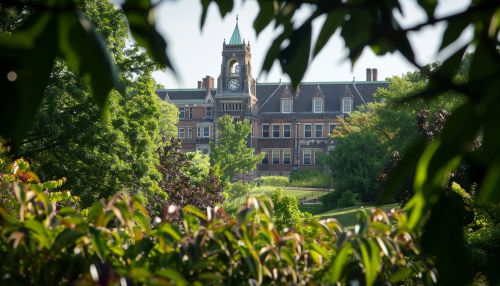
The university was initially established by Duke Karl I of Braunschweig-Wolfenbüttel as a Bildungsanstalt (educational institution) to provide a broad education for the ruling and working classes. It was named Collegium Carolinum in his honor. The institution offered courses in the humanities, natural sciences, and technical disciplines, reflecting the Enlightenment ideals of comprehensive knowledge.
In the 19th century, the Collegium Carolinum underwent significant changes. It was influenced by the Industrial Revolution and the growing importance of technical education. The institution started to focus more on applied sciences and engineering, leading to the establishment of the Technische Hochschule Carolo-Wilhelmina zu Braunschweig in 1877.
The transformation into a technical university was completed in 1968 when the institution was renamed Technische Universität Braunschweig. This change reflected the increasing importance of technology and engineering in higher education and research.
Academics
Braunschweig University of Technology is organized into six faculties: Carl-Friedrich Gauß Faculty, Faculty of Life Sciences, Faculty of Architecture, Civil Engineering and Environmental Sciences, Faculty of Mechanical Engineering, Faculty of Electrical Engineering, Information Technology, Physics, and the Faculty of Humanities and Educational Sciences.
Each faculty offers a range of bachelor's and master's degree programs, as well as doctoral studies. The university emphasizes a strong link between teaching and research, with many courses incorporating practical projects and research activities.
The university is known for its strong focus on engineering and natural sciences. It is also recognized for its interdisciplinary approach, with many programs combining different fields of study. For example, the university offers a unique degree program in Industrial Design that combines engineering, design, and social sciences.
The university also offers a range of international programs, with courses taught in English and partnerships with universities around the world. This international focus is reflected in the university's membership in the TU9, an association of the leading Institutes of Technology in Germany.
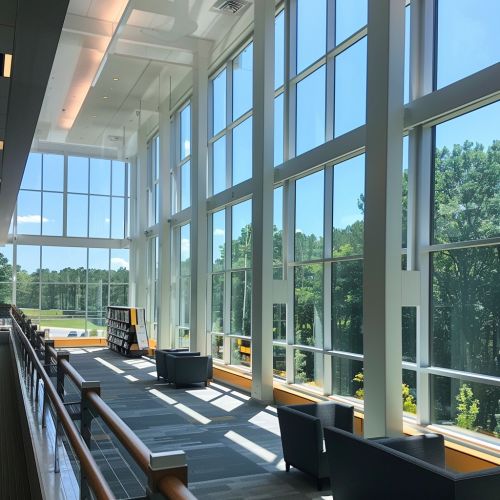
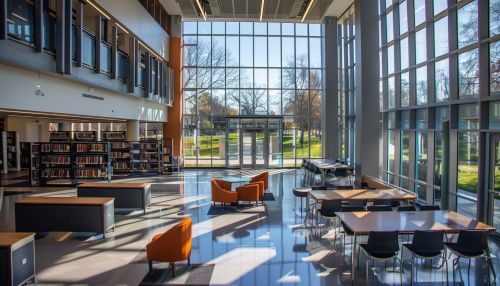
Research
Research at Braunschweig University of Technology is characterized by a strong focus on applied sciences and engineering. The university is known for its research in areas such as automotive engineering, aeronautics, biotechnology, and nanotechnology.
The university's research is organized into several research centers and institutes. These include the Institute of Automotive Engineering, the Institute of Flight Guidance, the Institute of Biochemical Engineering, and the Institute of Particle Technology.
The university is also part of several collaborative research centers funded by the German Research Foundation (DFG). These centers bring together researchers from different disciplines to work on complex scientific and technological challenges.
In addition to its own research activities, the university collaborates with external partners from industry and academia. These collaborations often result in joint research projects, patents, and spin-off companies.
Campus
The main campus of Braunschweig University of Technology is located in the city of Braunschweig, in the state of Lower Saxony, Germany. The campus features a mix of historic and modern buildings, reflecting the university's long history and its commitment to innovation.
The campus includes lecture halls, laboratories, libraries, and student housing. It also features several research facilities, such as the Automotive Research Centre Niedersachsen (NFF) and the Research Airport Braunschweig.
The university also operates several satellite campuses and research facilities in other locations. These include the East Campus, the North Campus, and the Research Centre for Agricultural Technology.
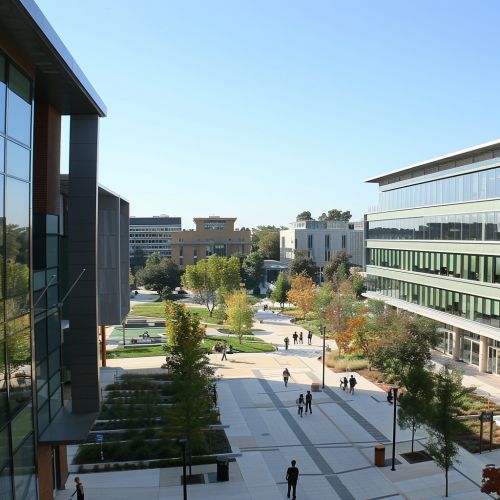
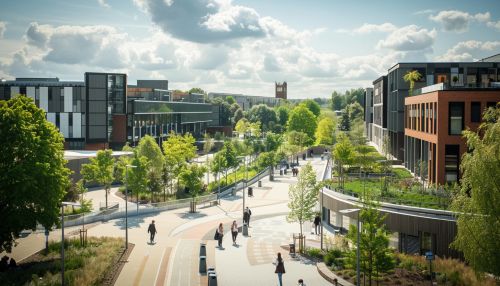
Student Life
Student life at Braunschweig University of Technology is vibrant and diverse, with a wide range of activities and services for students. The university offers various sports facilities, cultural activities, and student clubs.
The university's Studentenwerk (student services organization) provides a range of services for students, including housing, dining, and counseling. The Studentenwerk also organizes cultural events and activities, such as concerts, theater performances, and art exhibitions.
The university also has a strong tradition of student engagement and activism. The student council (Studierendenrat) represents the interests of students and organizes various events and initiatives.
Notable Alumni and Faculty
Over the years, Braunschweig University of Technology has been associated with many notable individuals. These include scientists, engineers, entrepreneurs, and public figures who have made significant contributions to their fields.
Notable alumni include Heinrich Büssing, founder of the Büssing AG, a leading German bus and truck manufacturer; and Jürgen Pfitzer, co-founder of Tecnaro GmbH, a company specializing in bioplastics.
Notable faculty members include Richard Dedekind, a mathematician known for his work on algebra and number theory; and Theodor Pöschl, a physicist known for his research on quantum mechanics.
